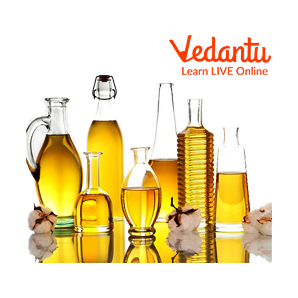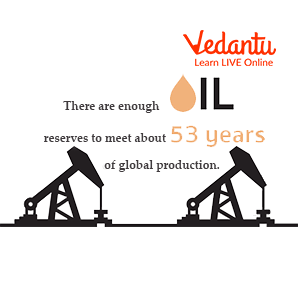




Why Is Oil Important? Definitions, Types & Real-Life Uses Explained
Since the middle of the 1950s, oil has emerged as the primary energy source in the world. Modern society is supported by its products, which primarily generate energy for the power industry, heat homes, and fuel vehicles and planes that transport people and commodities throughout the globe.
Both common household items like deodorant and lipstick as well as life-saving medical equipment like pacemakers and MRI machines need oil and natural gas. Let's learn more about this and educate ourselves.
Oil Definition
Oil is made up of liquid strings of hydrogen and carbon that are compacted from the remains of extinct plants and animals. Petroleum is a term that dates back to ancient Greece and comes from the Greek words "petro" for rock and "oleum" for oil.
Although the kerosene that could be made from crude oil to light lanterns was discovered by a Canadian geologist in the 1840s, the real beginning of the heating oil industry came with the invention of the oil burner, which was made possible by California's crude oil discoveries.

Oil Forms and Uses
Characteristics of Oil
It is necessary to understand the fluid's physical characteristics at high pressure and temperature in order to calculate an oil reservoir's reserves or assess its performance. Bubble Point pressure, solution gas-oil ratio (GOR), and high fill factor are of utmost significance (FVF).
For computations including the flow of oil via pipe or porous medium, viscosity and interfacial tension must also be established.
The following essential oil characteristics are typically required to comprehend a resource and its producibility:
Solution gas to oil ratio and bubble point pressure (GOR)
Volume of formation
Viscosity
Tension between surfaces
Density
Isothermal compressibility
Facts About Oil and Gas
Given below are some facts about oil and gas:
Crude oil is created from plant and animal materials.
Ancient societies used oil.
Crude oil produces multiple fuel types.
Oil is utilised to make a variety of goods.
The Ghawar Field in Saudi Arabia is the largest oil field in the world, and it is situated in the Middle East.
One of the true industry giants is the oil tanker.
A significant energy source is oil.
Oil is discovered outside of your heating oil tank.
There are more, more unique forms of plant oils in addition to olive oil, sunflower oil, and vegetable oil.
In a liquid state at room temperature, oil changes. Oils have more carbon-to-carbon bonds than fats, which explains why.
Numerous names have been given to oil, including "Texas Tea," "Black Gold," "rock oil," "petroleum," "crude," and many others.
With daily consumption of almost 19,000,000 barrels, the USA consumes by far the most oil in the world.

Fact About Oil
Some Examples of Benefits from Oil on a Daily Basis
Some examples of benefits from oil on a daily basis are as follows:
Rulers, crayons, ink and toner, glue, book covers, and binders are common classroom supplies.
For your health: cream binders, pill coatings, and single-use syringes.
In the home: contact lenses, cosmetics, apparel, textiles, nail polish, deodorants, shampoo, paint, carpeting, upholstery, laundry and dish detergents, and dry-cleaning solvent.
Shopping bags, credit cards, cartons of eggs, and plastic milk bottles
Use nonstick frying pans, cling film, and storage containers for cooking.
Roofing shingles, pipelines, insulation, and paint are all used in construction.
On the move: emergency services, trains, gasoline and diesel for automobiles and lorries, and asphalt road surfaces.
Office supplies include computers, phones, fax machines, diskettes, pens, chairs, and ink.
You may use the following items at your discretion: CDs, DVDs, cassettes, camera film, artist's paint, cycling handlebar grips, tyre, crash helmet, sports shoes, trainers, shin pads, windsurfers, and rollerblades.
Fertilisers, insecticides, and outdoor furniture for the garden
Summary
It is impossible to exaggerate the importance of oil. It is a significant source of energy, producing heat and powering different kinds of vehicles and machines. Additionally, it is a key ingredient in many of the items we use on a daily basis, such as plastics, paints, and cosmetics.
Not everyone likes crude oil due to worries about the harm it causes to the environment. Most people concur, however, that we currently cannot survive without it and that ceasing to collect and refine crude oil would cause the world economy to come to a complete halt.
FAQs on Essential Facts About Oil for Students
1. What is crude oil and where is it found?
Crude oil, also known as petroleum, is a thick, dark liquid found deep under the ground and beneath the ocean floor. It is a fossil fuel, which means it was formed millions of years ago from the remains of tiny dead sea animals and plants. Over time, intense heat and pressure from the Earth's layers turned these remains into oil.
2. Why is oil often called 'black gold'?
Oil is called 'black gold' because it is extremely valuable to our modern world, just like gold. It is black in its natural, unrefined state. This nickname highlights its importance as a primary source of energy for cars, planes, and factories, and as a raw material for countless products like plastics, medicines, and synthetic fabrics. Its critical role in the global economy makes it a very precious resource.
3. What are some everyday items that are made from oil?
Many common items we use daily are derived from petroleum. Some key examples include:
- Fuels: Petrol for cars, diesel for trucks and buses, jet fuel for aeroplanes, and LPG for cooking.
- Plastics: Items like water bottles, lunch boxes, toys, and parts of electronic devices.
- Other Products: Vaseline, crayons, chewing gum, tyres, and clothing materials like nylon and polyester.
4. How is the thick, black crude oil turned into useful products like petrol?
Crude oil is processed in a large factory called an oil refinery. Inside the refinery, the oil is heated to a very high temperature in a tall tower. This process, called fractional distillation, causes the crude oil to separate into different liquids and gases at different temperatures. Lighter parts like petrol rise to the top, while heavier parts like diesel and wax stay lower down. Each separated part, or 'fraction', is then collected to be used for different purposes.
5. What is the main difference between petrol and diesel?
Both petrol and diesel are fuels made from crude oil, but they differ in their properties and uses. Petrol is a lighter fuel that evaporates easily and is used in the engines of most cars and motorcycles. Diesel is a heavier, oilier fuel that provides more energy and is used in larger, more powerful engines found in trucks, buses, trains, and tractors.
6. Since oil is made from ancient organic matter, why can't we just make more of it today?
We cannot create more oil quickly because its formation is a natural process that takes millions of years. It requires a very specific set of conditions: huge amounts of dead organic material buried under layers of sediment, immense pressure from the rock above, and high temperatures deep within the Earth's crust. Because this process is so slow, oil is classified as a non-renewable resource, meaning we consume it much faster than nature can replenish it.
7. Why is it important to save oil and how can we do it in our daily lives?
It is crucial to save oil because it is a limited resource that will eventually become scarce and more expensive. Furthermore, burning oil as fuel releases pollutants into the air, which is harmful to the environment. We can help conserve oil with simple actions such as:
- Using public transport like buses or trains instead of private cars.
- Walking or cycling for short distances.
- Ensuring vehicles are turned off at traffic signals.
- Reducing the use of single-use plastic items, which are made from oil.









